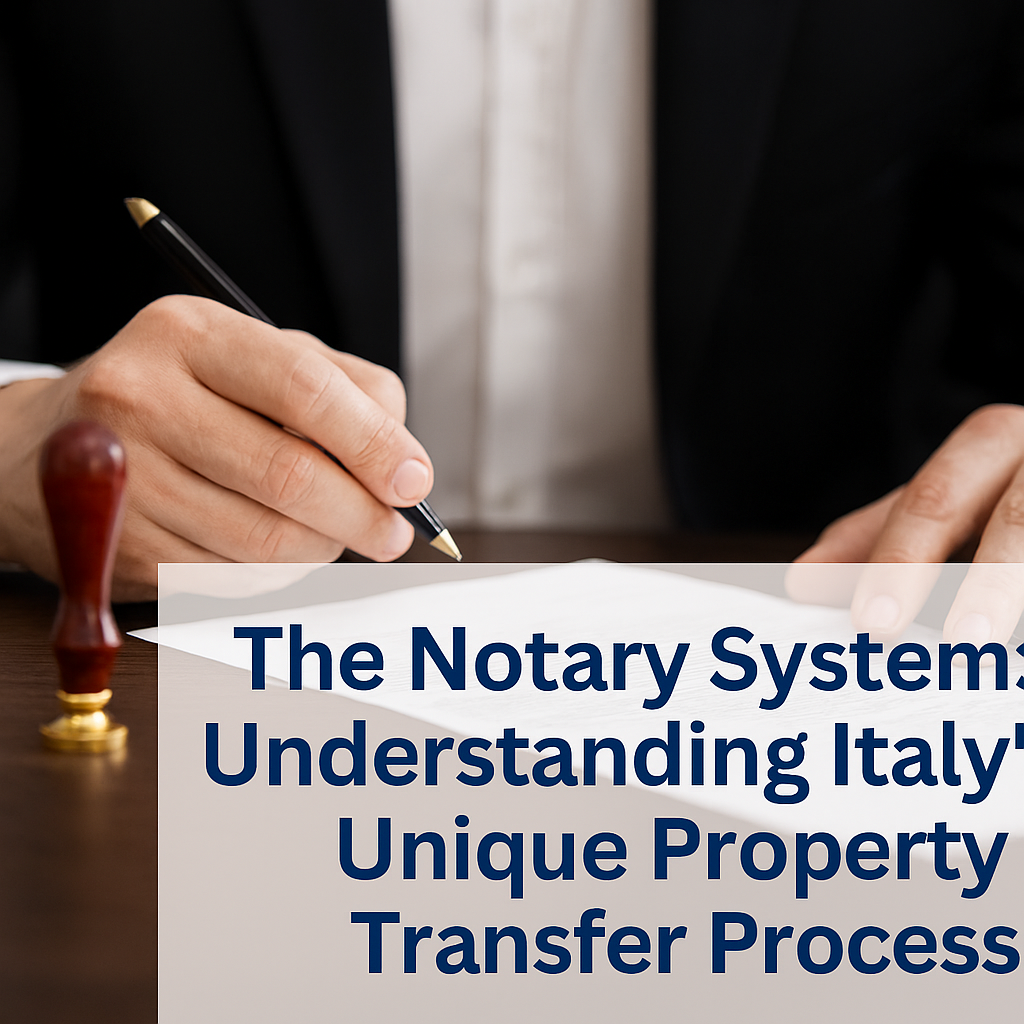
Introduction
Buying a property in Italy is an exciting step—but one that involves a deeply rooted legal tradition unlike most countries: the notary system. If you're a foreign investor or expat looking to purchase real estate, understanding the notary’s role is not optional—it’s essential.
🏛️ What Is a Notary in Italy?
In Italy, a notary (notaio) is a public official and legal expert who acts as a neutral party to validate and register property transactions. Unlike in Anglo-Saxon systems, where lawyers often handle property transfers, the notary holds public authority and is legally required to be involved in every real estate sale.
✅ Key Responsibilities of the Italian Notary
- Due diligence on the property (title, liens, planning permissions)
- Drafting and authenticating the final deed of sale (Rogito Notarile)
- Ensuring taxes (like registration and cadastral) are paid
- Registering the transaction with the Land Registry (Catasto)
- Holding funds in escrow, if needed, for safe exchange
⚠️ Why the Notary Is Crucial for Foreign Buyers
For international investors, the notary ensures:
- Transparency in ownership
- Legal compliance of contracts
- Peace of mind that you're buying a legally sound property
The notary also ensures interpretation services for non-Italian speakers, and they will not proceed unless the buyer understands every term of the contract.
💶 How Much Does a Notary Cost in Italy?
Notary fees range from €2,000 to €4,000, depending on:
- Property value
- Complexity of the transaction
- Region (fees are generally higher in northern cities)
This cost is typically paid by the buyer.
📜 The Timeline of a Notarized Sale
Preliminary Agreement (Compromesso) – Not mandatory to be notarized.
Due Diligence – Notary checks land registry, debt, zoning compliance.
Final Deed (Rogito) – Signed in front of a notary. Buyer pays balance + taxes.
Registration – Notary files everything with the Registro Immobiliare.
🇮🇹 Unique Aspects of the Italian Notary System
- Independent yet public role
- Liability: if they make a mistake, they’re accountable
- Binding power: only notarized deeds can transfer ownership
🧭 Final Thoughts: Your Trusted Guide in Italian Real Estate
Buying property in Italy without a notary is impossible—and rightly so. Far from being a bureaucratic obstacle, the notary is your safeguard against fraud, bad surprises, or improper contracts.
So when you sign in front of a notary in Italy, know this: you’re not just buying a home. You’re becoming part of a tradition of legal transparency and protection that’s centuries old.
📌 Want help navigating the notary process in your next Italian property deal?
Schedule a free call with one of our experts today.
Ready to Start Your Puglia Property Journey?
Get expert guidance and unlock up to €2.25M in EU grants for your investment.